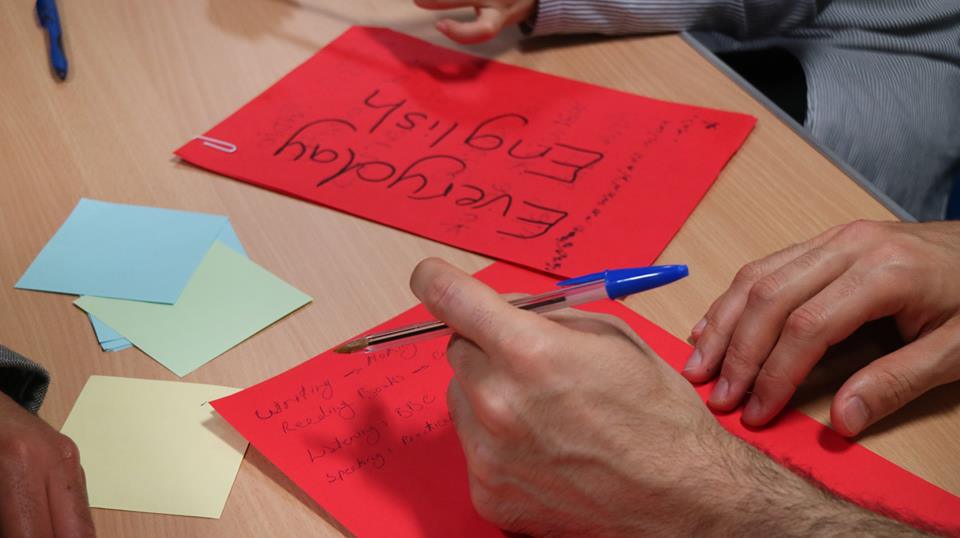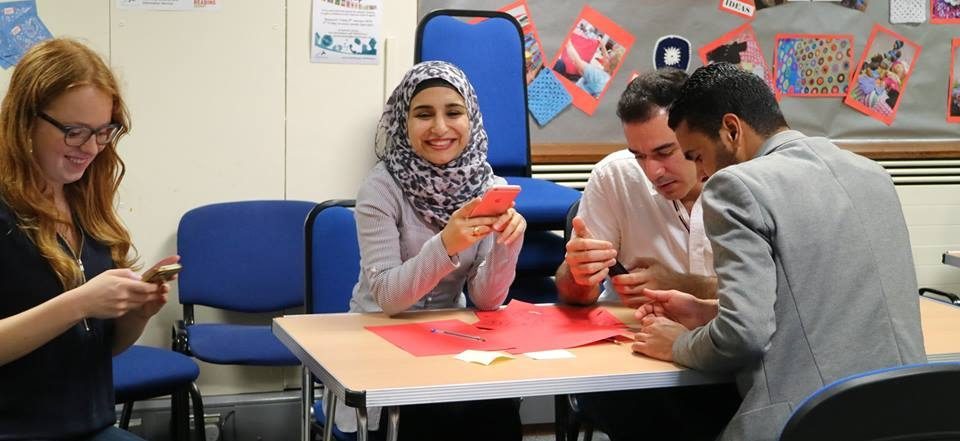“Empowering” english workshops for refugees held by students
The final meeting of an English-skills workshop for refugees took place in the Coventry Public Library on Friday 10 June. The initiative, sponsored by STAR (Student Action for Refugees), aims to teach vital language skills to help in their day-to-day lives in the UK.
The meetings, or ‘Tea Parties’, are informal. They begin with introductions, ice-breaker games, and move on to the workshop. While English-language levels vary considerably, the majority of participants have very basic English skills and are learning the essentials for everyday interactions.
Many are hoping to continue their education by applying to local academic courses, but language is a significant barrier. Teaching is divided between university, work, everyday, and beginner’s English.
Language skills are essential in securing decent jobs and courses in the UK, which require immigrants to pass the International English Language Testing System (IELTS). Even so, it can be hard to find a job that matches academic qualifications obtained abroad.
While the refugees originate predominantly from Syria, many asylum-seekers are from Afghanistan, Iraq, Eritrea and Iran, and speak a range of different languages. This cultural and linguistic isolation is something the workshop aims to break down through informal meetings that encourage socialising alongside key language skills.
I think integration is the biggest barrier. Even those who have good English may find it extremely difficult to integrate. It certainly takes more than speaking the language well; the culture is very different.
Mahmoud Jeidani, Warwick graduate and Syrian immigrant
When asked about the workshops, participants called the sessions supportive and empowering. Many said they enjoyed the teamwork and the opportunity make friends and share both their skills and their experiences.
The weekly meetings have taken place in Coventry Refugee Centre, Peace House and the Grad Deck on Warwick campus as the organisers try to strike a balance of convenience between participants and volunteers, who are mostly students from Warwick and Coventry.
Warwick graduate and current academic writing tutor, Mahmoud Jeidani, has taught English for ten years. He spoke about his experiences both as a Syrian immigrant and volunteer: “I don’t see the purpose of these gatherings as purely educational; they help break social isolation as well as the cultural touch of opening up to new people and learning to develop the confidence to speak, listen, and negotiate.”
“I think integration is the biggest barrier. Even those who have good English may find it extremely difficult to integrate. It certainly takes more than speaking the language well; the culture is very different.”
Mr Jeidani also commented on the effects of Brexit’s anti-immigration campaign: “The hype certainly doesn’t help with refugee difficulties, though from experience I still think the UK is a much more hospitable place than other countries.”

Photo: STAR Tea Parties / Facebook
Pa Moh, another participant, was initially reluctant to move to the UK from Iran as a result of its portrayal in the media: “This propaganda is really coming from both sides, but nowadays the body of Iranian society has a different perception as there is more access to free information. I don’t see much animosity towards people.”
“I would comment on Coventry as a friendly place, thanks to Coventry University. I think this university is changing this whole face of the city in terms of business, culture and diversity.”
According to recent Home Office figures, Coventry has taken in more refugees than any other city in the UK. The city has accepted 105 refugees since the government’s Syrian Vulnerable Persons Resettlement Scheme was expanded in October.
To conclude STAR’s final Tea Party, Ms Doukmak asked participants whether the sessions should continue. The answer was a unanimous yes.

Comments